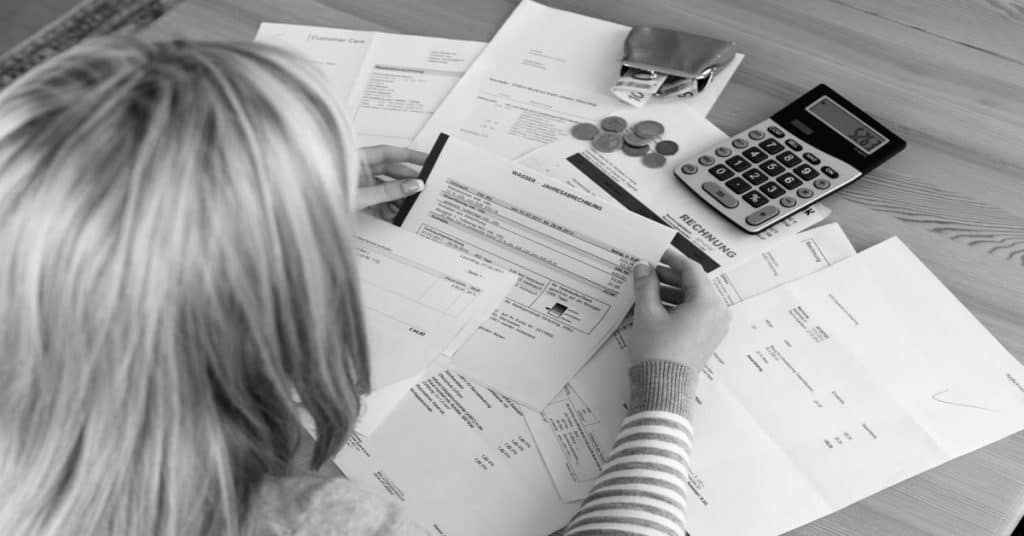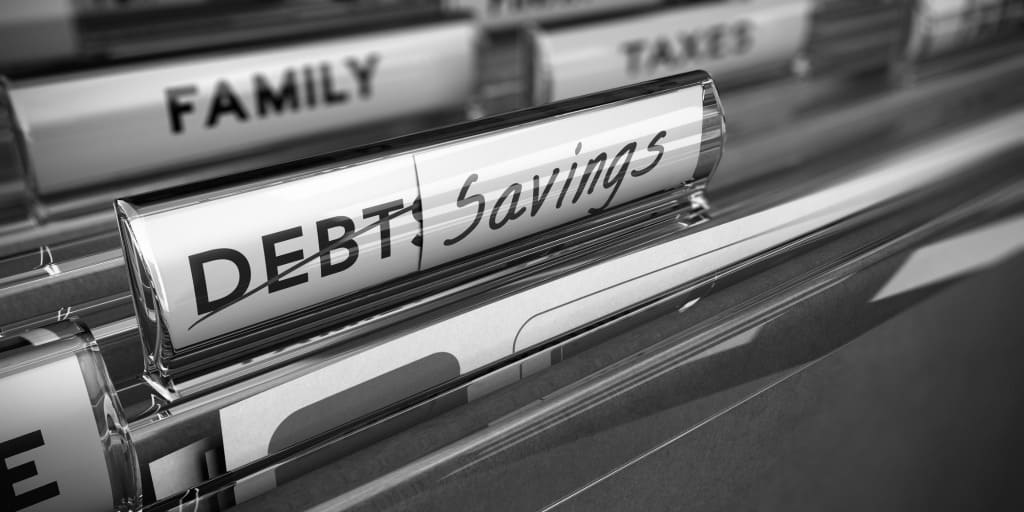Break the Paycheck-to-Paycheck Cycle and Start Saving
(This page may contain affiliate links and we may earn fees from qualifying purchases at no additional cost to you. See our Disclosure for more info.)
You’re not alone, but being part of this crowd isn’t comforting. And it makes sense when you look at the statistics.
Just a few years ago, about 60% of Americans reported having less than $1,000 in savings. And a full 20% admit they had nothing saved at all.
Let those numbers sink in. More than 3 out of 4 full-time workers admit to living paycheck to paycheck.
Living this way is a frustrating reality for many women. This is a serious problem.
But don’t give up hope, even if you’ve lived this way your whole adult life.
Here are five things you can do to break the paycheck to paycheck cycle and take control of your finances.

1. Total Your Debts
When you have to spend a significant portion of your paycheck paying off debts, it’s tough to get ahead.
The paycheck to paycheck cycle is even harder to break if you are deep in debt.
But the cycle will never end if you don’t face the numbers and understand just how much debt you have.
To total your debt:
- Add up the balance on every credit card you have
- Total any outstanding loans (student loans, car loans, or lines of credit for furniture or appliances)
- Add in your mortgage if you own your home (“good debt” is still debt…)
2. Record Your Expenses
Mindless spending may be the reason you run out of money at the end of the month.
While the occasional morning latte, lunch out, or toy for your child in the check-out line may not bust your budget, mindful spending decisions matter as you work to break the cycle.
If you haven’t carefully tracked how much money you're spending, you might be shocked to see the total at the end of the month.
Use a spiral notebook or try-out tools like Excel or Google Sheets. You can even use free apps to track where you're spending your money.
Before you try to make any spending changes, record your spending for at least one month. When you know where your money is going, you can do something about it.
3. Make Small Changes
A recent MetLife study shows that almost half of the workforce reports “feeling concerned, anxious, or fearful about their money situation.” And you probably feel this way too.
Taking small steps to clean up a money mess can be a real challenge. But starting small can lead to big results.
After tracking your purchases for a month, you should be able to find a few places where you can cut back – even if it saves you just a few dollars a day.
Maybe it’s bringing your lunch to work or making coffee at home. Or it could be dropping take-out once a week.
You might be surprised how quickly you could save $10 or $25 a week. Maybe a lot more.

That money can then be used to start building an emergency fund and paying off your debt.
After you’ve made a few small changes, you can take on new areas you identified as problems.
Consider things like changing cell phone carriers and reducing or eliminating cable TV.
Make a call to your service providers to ask if you are getting the best deal they can offer. You might be surprised at how quickly the price drops if they are worried you might cancel service.
Keep track of what you are saving each month. Even though you may not be able to save a big part of your paycheck right away, remember that you're making progress.
4. Start Now and Stop Living Paycheck to Paycheck
Just start. Don’t wait until for a new week, or next month. And don’t make taking control of your finances a resolution for next year.
Take action now. Consider your tax refund or your next raise as a bonus to grow your emergency fund or to pay down big chunks of debt.
Time is your friend. This is not a get rich quick scheme, and there is no magic formula to follow.
The more time your savings has to grow, the more quickly you can pay off your debts and build a cushion of money for emergencies.
5. Stay the Course
It is incredibly frustrating to know that your paycheck will barely cover your regular expenses for the month.
But keep in mind that almost everyone gets trapped in the paycheck to paycheck cycle at some point – so don’t give up.
Getting a clear picture of your financial situation will allow you to take control of it.
But it will take time and patience. If you stray off course, just start again. And ask for help if you need it.
You matter. Your future matters.
Total Your Debts. Record Your Expenses. Make Small Changes. Get Started Now. Stay the Course.
Do you have more money questions? Contact us, and we’ll find the answer!
